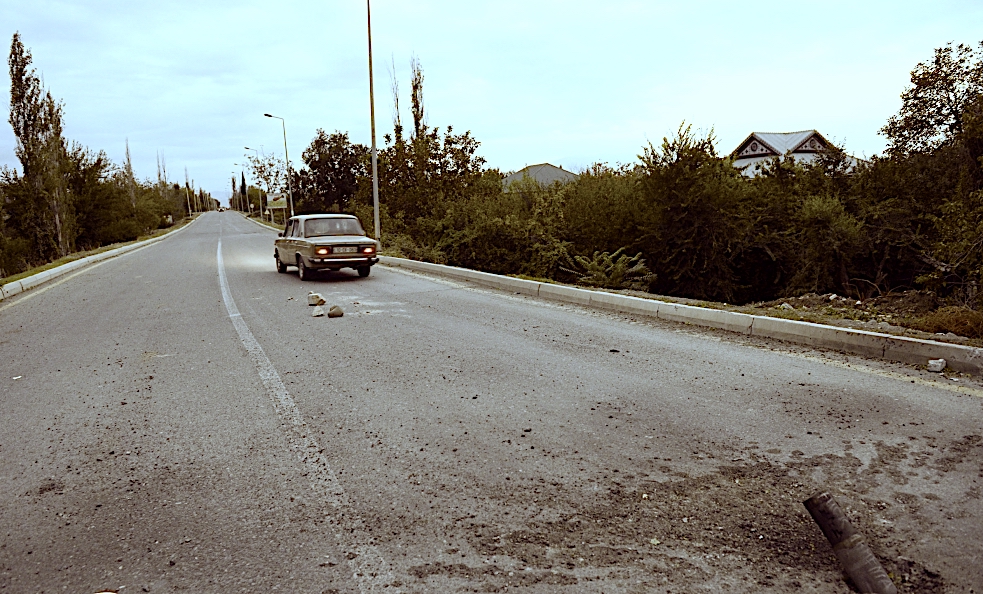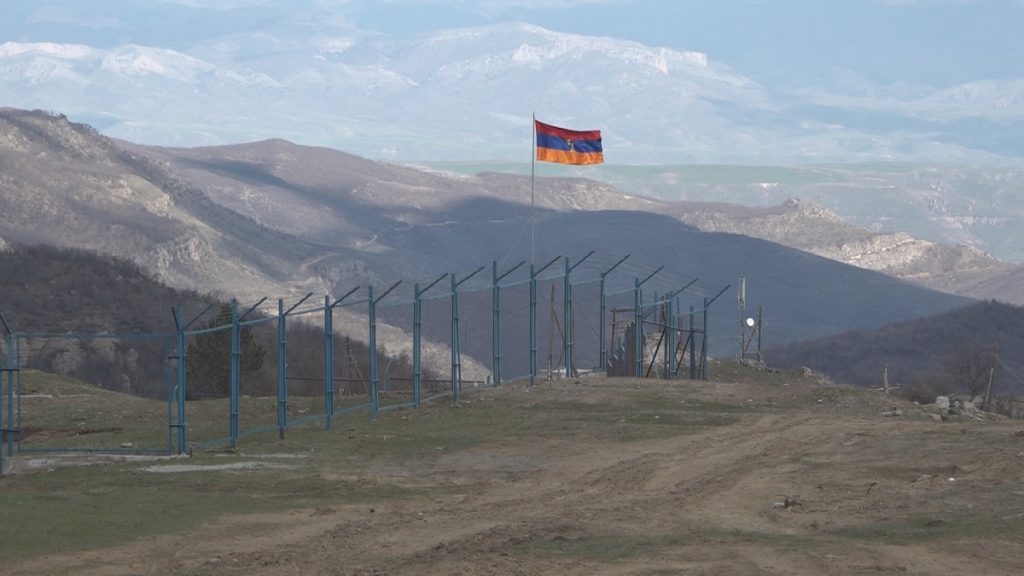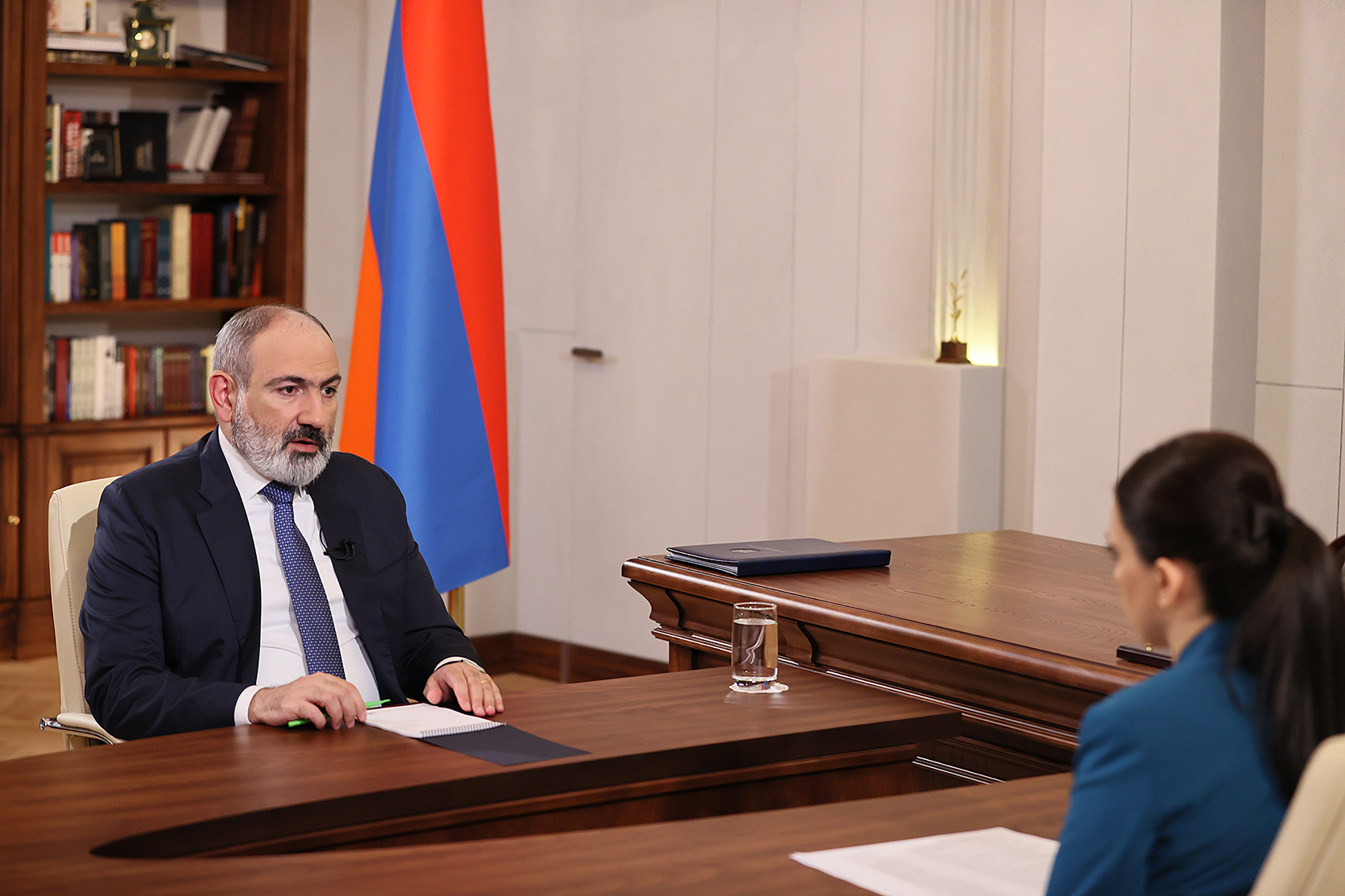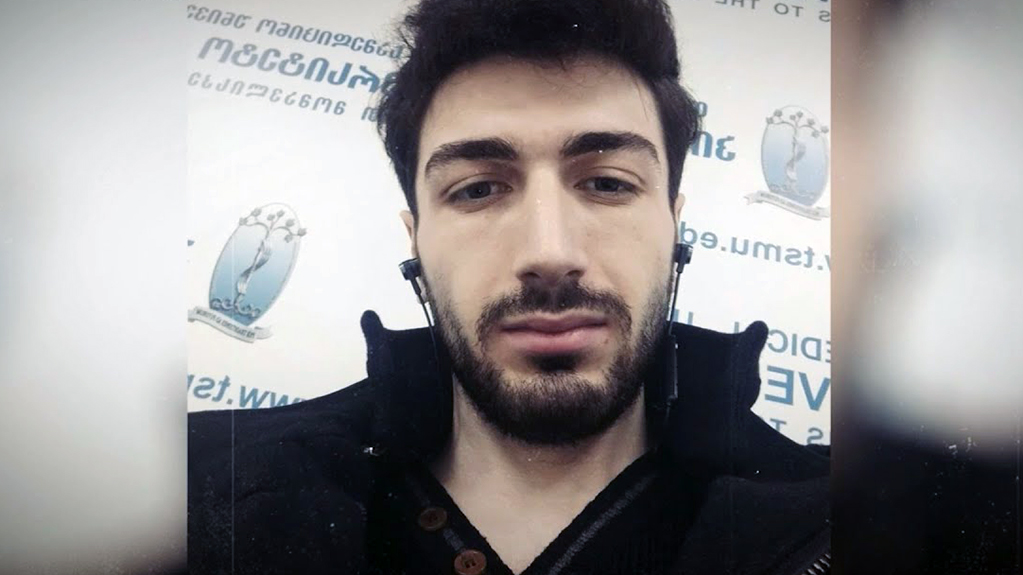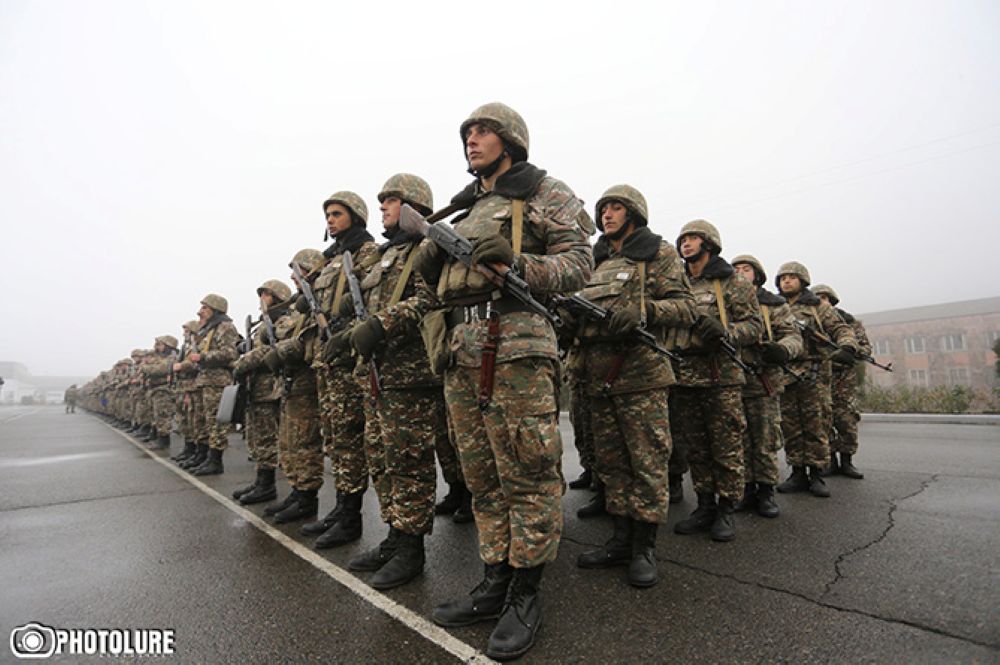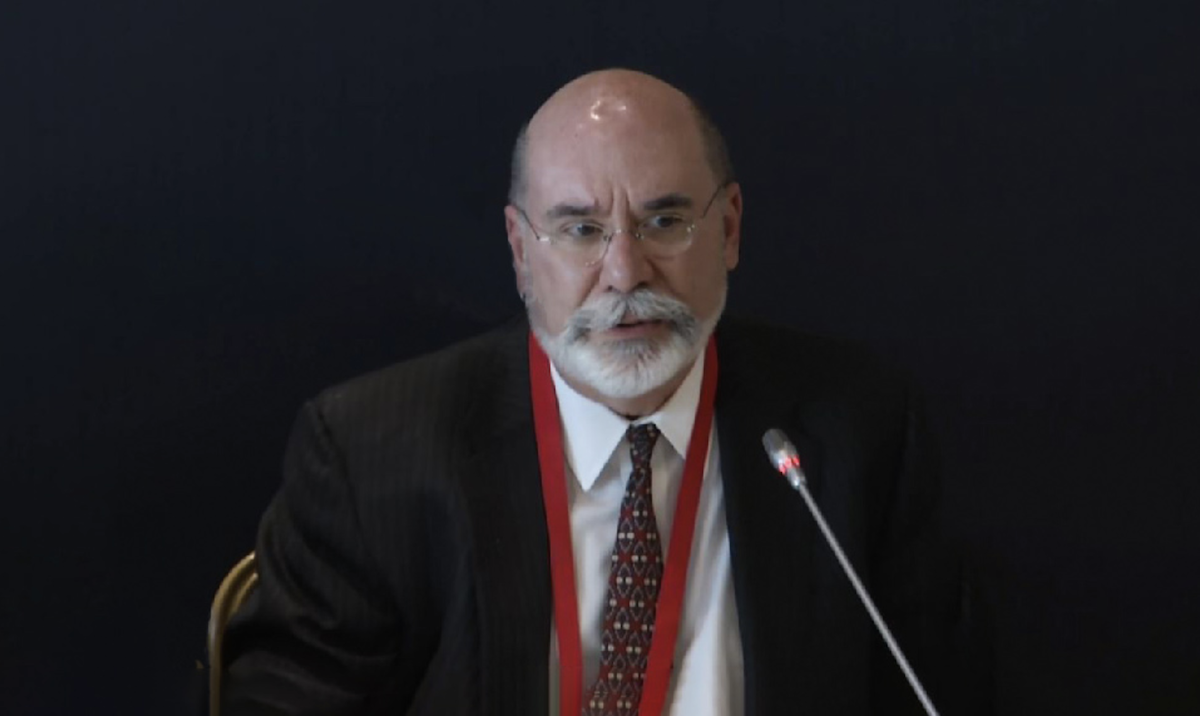"Veiled threat" - Armenian political scientist on the statements of Maria Zakharova
Russia’s reaction to Western activity
“The West is clearly trying to transfer confrontational schemes worked out in Ukraine. We see what unprecedented external pressure Armenia is subjected to,” Russian Foreign Ministry spokeswoman Maria Zakharova said. She went on to say that Moscow cannot but be disturbed by “alarming trends gaining momentum in the Transcaucasus.”
Zakharova made extensive commentary on the involvement of the West in the process of resolving Armenian-Azerbaijani relations.
Political scientist Gurgen Simonyan believes that the parallels between Ukraine and Armenia, which were drawn by the official representative of the Russian Foreign Ministry, can be regarded as a threat.
On October 25, a Kremlin spokesman said that on Putin’s initiative, trilateral talks between the leaders of Armenia, Azerbaijan and Russia would take place, but did not specify the date or place of the meeting. The Russian edition of Vedomosti reported that negotiations were scheduled for the end of October. Official Yerevan has not yet confirmed or denied this information.
Zakharova: “Steps to discredit Russia’s policy in the region”
Zakharova believes that steps are being taken to discredit Russia’s policy in the region. Numerous foundations, NGOs and media, acting “on the orders of Washington and Brussels”, seek to “damage the centuries-old ties between our countries and peoples”, and sow anti-Russian sentiments in Armenian society. She believes, however, that “attempts by external forces to divide Moscow and Yerevan will not be successful.”
Zakharova also stated that the West is showing a “cavalier approach” to the normalization of Armenian-Azerbaijani relations:
“Neither regional specificity, nor particular sensitivity of the problem is taken into account. The true goals of Washington and Brussels are by no means the development of compromise and balanced solutions, but self-promotion and squeezing Russia out of the Transcaucasus.”
Zakharova once again conveyed the Kremlin’s opinion that the West is trying to appropriate the successes achieved in the Putin-Pashinyan-Aliyev trilateral format.
“The visits to Armenia by Western emissaries under the banners of the European Union, OSCE, France have become more frequent. Hastily concocted initiatives are being promoted that do not take into account the interests of the entire population of the region. This is fraught with a disruption of the balance that was achieved in difficult conditions on the basis of the agreements between the leaders of Russia, Azerbaijan and Armenia dated November 9, 2020 [the statement that stopped the war in Karabakh – JAMnews].”
Russia’s reaction to Western activity
She called the accusations that Moscow is not fulfilling its security obligations to Armenia “unfounded”.
That Russia, as a strategic ally, is not fulfilling its obligations was actively discussed in Armenia after the last invasion of the Azerbaijani armed forces in September. The first such advance deep into the territory of Armenia was in May last year. Since then the authorities have repeatedly turned to Russia and the CSTO military bloc, acting under its leadership, but have not received help.
It is noteworthy that Zakharova did not provide facts about the fulfillment of obligations towards Armenia, but recalled that Russia stopped the second Karabakh war and deployed peacekeepers in Nagorno-Karabakh, who “brought peace and stability to the region.”
“Attempts by external forces to achieve the withdrawal of the Russian peacekeeping contingent are precisely aimed at destabilizing the South Caucasus,” she said.
According to Zakharova, “Russia is determined to strengthen the strategic alliance and multifaceted cooperation with Armenia, which will allow us to jointly overcome the current challenges.”
Russia’s reaction to Western activity
Comment
According to political scientist Gurgen Simonyan, Zakharova’s mention of the events taking place in Ukraine is a hidden threat to Armenia.The West did not initiate anything in Ukraine; it was Russia that invaded.
“If the Kremlin draws parallels between this scenario and what is happening in Armenia, it means they’re saying: look what happened in Ukraine, the same will happen to you,” the JAMnews analyst said.
According to the Simonyan, during the Pashinyan-Putin-Aliyev meeting there will be no attempt to fully return the negotiation process to the Russian platform:
“This meeting will only discuss transit routes. Due to mercantile interests, clear tasks will be set and there will be an attempt to promote their approaches through blackmail.”
Analysts in Armenia have long been saying that Russia first of all wants to gain control over this road in its own interests, although Azerbaijan put forward the demand for a “corridor”. It is important for Baku that Armenia does not control this road, which is what the term “corridor” used by Azerbaijan implies. The Armenian authorities so far categorically reject such a formulation of the issue and declare their readiness to unblock routes within the framework of the country’s legislation, that is, with the preservation of sovereign control.
Simonyan believes that during the discussion of this issue, the West’s willingness to help and Armenia’s ability to resist will become evident. He says it was thanks to the intervention of the United States that it was possible to stop the September invasion.
Simonyan says that the West is engaged in real politics and not “self-promotion”, as representative of the Russian Foreign Ministry Maria Zakharova claims.
Moscow is essentially attempting to “stir things up” with such rhetoric.
According to Simonyan, the upcoming trilateral talks can be considered a step back from the “pole of aggression against Armenia.”
“While earlier they [Russia and Azerbaijan] wanted to resolve the issue by brute force, now they are trying to reach an agreement. In other words, they recognize Armenia as the party that owns these routes, they recognize the sovereignty of Armenia over these territories.”
According to Simonyan, if during the upcoming meeting it is not possible to force Armenia to agree to its demands, they may move on to discussing “some mutually beneficial models.”
The political scientist recalls the recently discussed hypothesis that the second Karabakh war took place precisely in the context of “corridor logic”:
“The war was stopped because the main goal was not to establish control over Nagorno-Karabakh, but to form a platform for blackmail. So that in the future you can show your military-political ambitions regarding Syunik [the southern region of Armenia on the border with Azerbaijan] and put pressure on Armenia to get what you want.”
Follow us – Twitter | Facebook | Instagram
Russia’s reaction to Western activity










